Underneath the roaring freeway at Chicano Park, a team of seven gathers: 8 years old to gray-haired, all genders and diverse indigenous ancestry. They are the Tlecoyotes — Fire Coyotes. Together, they are working to bring back one of the oldest team sports in history, ulama, in San Diego. And, with it, to reclaim a key piece of Mesoamerican cultures.
Schools don’t teach ulama. There’s no manual for how to warm up. So they get creative, inventing drills that focus on their hips, the only body part allowed to hit the ball.
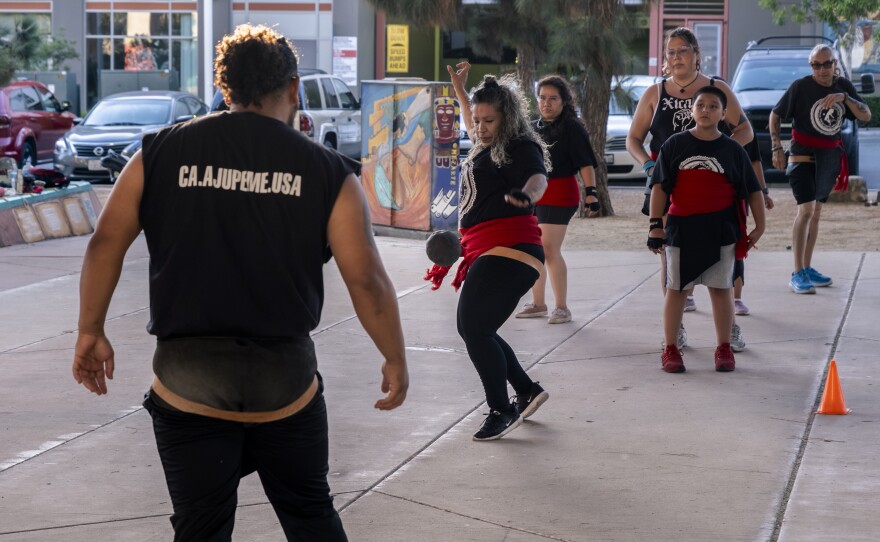
They count off in Nahuatl, an Aztecan language, as they stretch: “Ce, ome, yei, nahui . . .”
They wrap suede and leather around their midsections to protect their bodies from the 8-pound rubber ball — the sacred sphere — and a faja, woven belt, to protect their spirits.
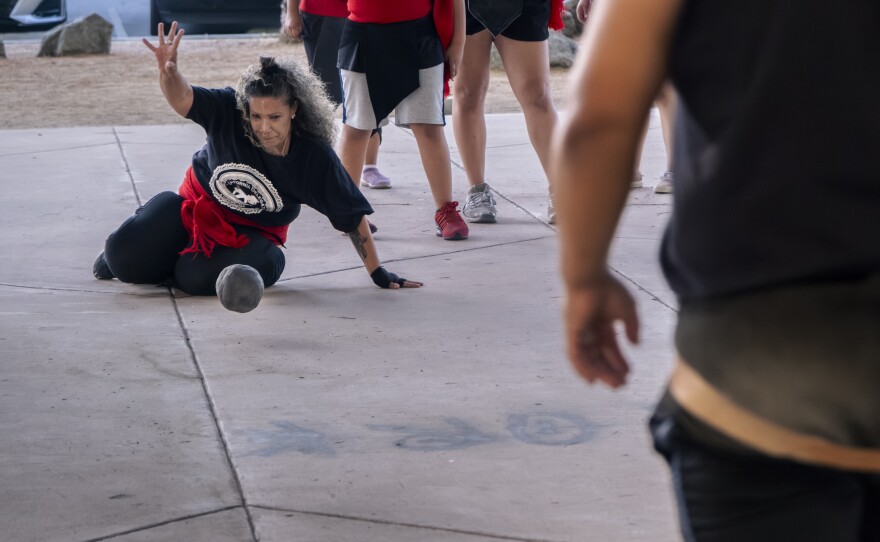
They sweep the pavement free of glass and practice diving onto it, one-handed, to save a low-bouncing ball.
They burn sage, clarifying their energy and asking their ancestors for permission to play their sport.
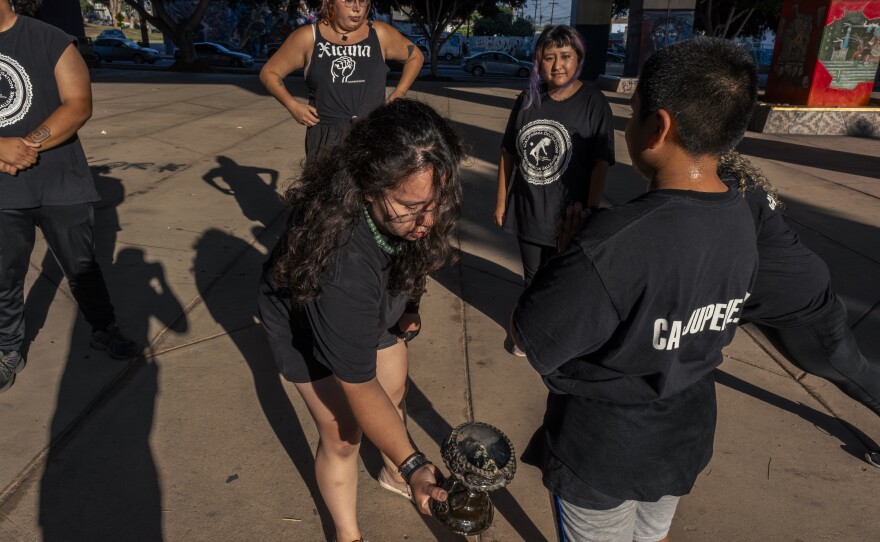
They start the music, a boombox playing in place of traditional live drummers. They consider the beat of the drum the heartbeat of the Earth. Players become one with the Earth as they move to it.
And the game begins. Each side fights with their hips to keep the ball from crossing the line behind them.
It’s more than just a game. For thousands of years, Indigenous people across Mesoamerica played ulama to settle conflict and connect with divine forces.
Catholic conquistadors banned the sport. Now, half a millennium later, teams are forming again in Central America and the United States.
The Tlecoyotes’ director, Eduardo Santiago, calls it decolonizing through movement.
“As we are asking ourselves, 'why did these things about us go away?' As we are realizing that brown is beautiful, as we are revitalizing our culture,” Santiago said. “There will be next generations of ulama.”
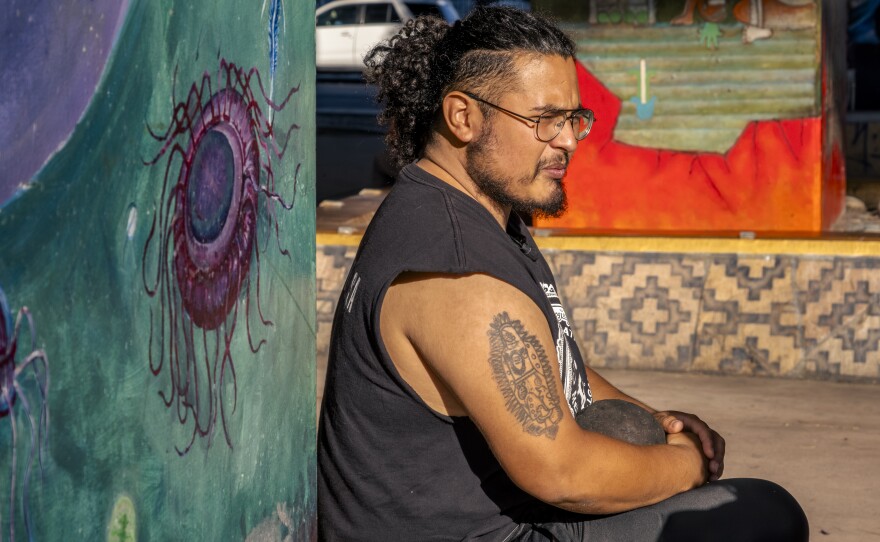
Santiago first saw the sport on YouTube a few years ago, as he was diving into the ancestry of his Chicano roots. He dreamed of bringing it to San Diego. Then, one day last year, he heard there would be ulama at a cultural exchange between Las Vegas and cities in the Yucatán the next day.
After his graveyard shift, he drove to Las Vegas from San Diego.
There, he met a team that practiced in the San Fernando Valley. He started driving five hours every weekend to train with them and learn the sport.
Then, he invited some of his friends to play in San Diego, including Michel’le Sepu’lveda. Her Indigenous name is Baguá Inaru, which means woman of the ocean in Taíno.
Born in San Diego, Sepu’lveda lived in Puerto Rico for two years as a child. There, she remembered seeing a sacred rubber ball game — called batú in Taíno — in her history book.
The honor of bringing a sacred ball game out of history and onto the pavement moved her to tears.
She lives with lupus and fibromyalgia. She said ulama gave her a reason to wake up every morning. Persisting through her chronic pain connected her with her enslaved ancestors, who played batú during their breaks from the field.
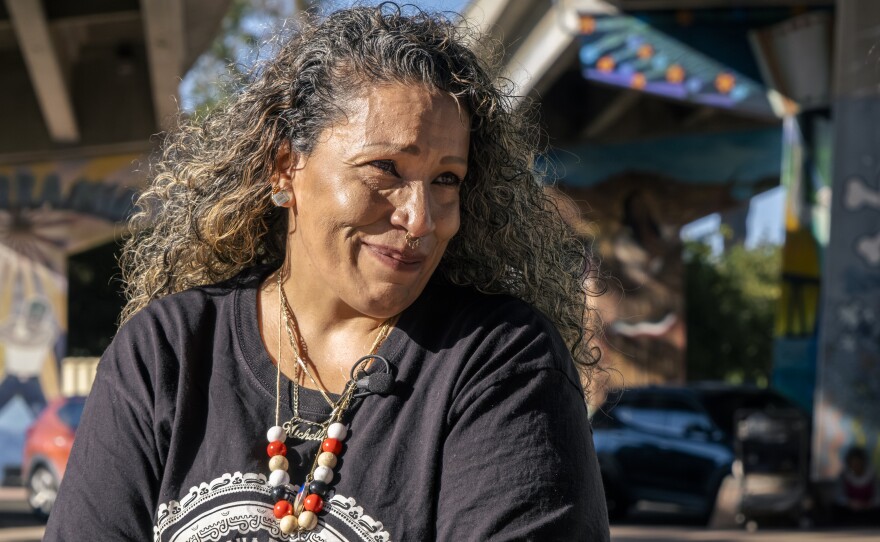
“Because, imagine, my ancestors pushed through even when they were playing this in the sugar fields,” Sepu’lveda said. “Just playing bomba and remembering who they truly were.”
She dreams of a real ulama court at Chicano Park. And one day, bringing the sport back to her island.
To her, playing ulama is an act of both childlike joy and ongoing Indigenous resistance.
“We still, till this day: libre,” she said. “We want our liberty. We want to be recognized, to be acknowledged that I do exist.”
Representatives of the national association for the sport, Ajupeme-USA, will inaugurate the team Saturday at Centro Cultural de la Raza at 10 a.m., followed by an inaugural game against Itzpapalotl San Fernando Valley at Chicano Park.
Santiago said another team was already forming in Yuma, Arizona.
As the sun lowers under the Coronado Bridge and the sage smolders, the players laugh and dive and encourage each other.
In the park behind them, a mural of the last Aztec emperor towers.
Their sacred sphere rolls past the painted words: “I rather die on my feet than live on my knees.”





